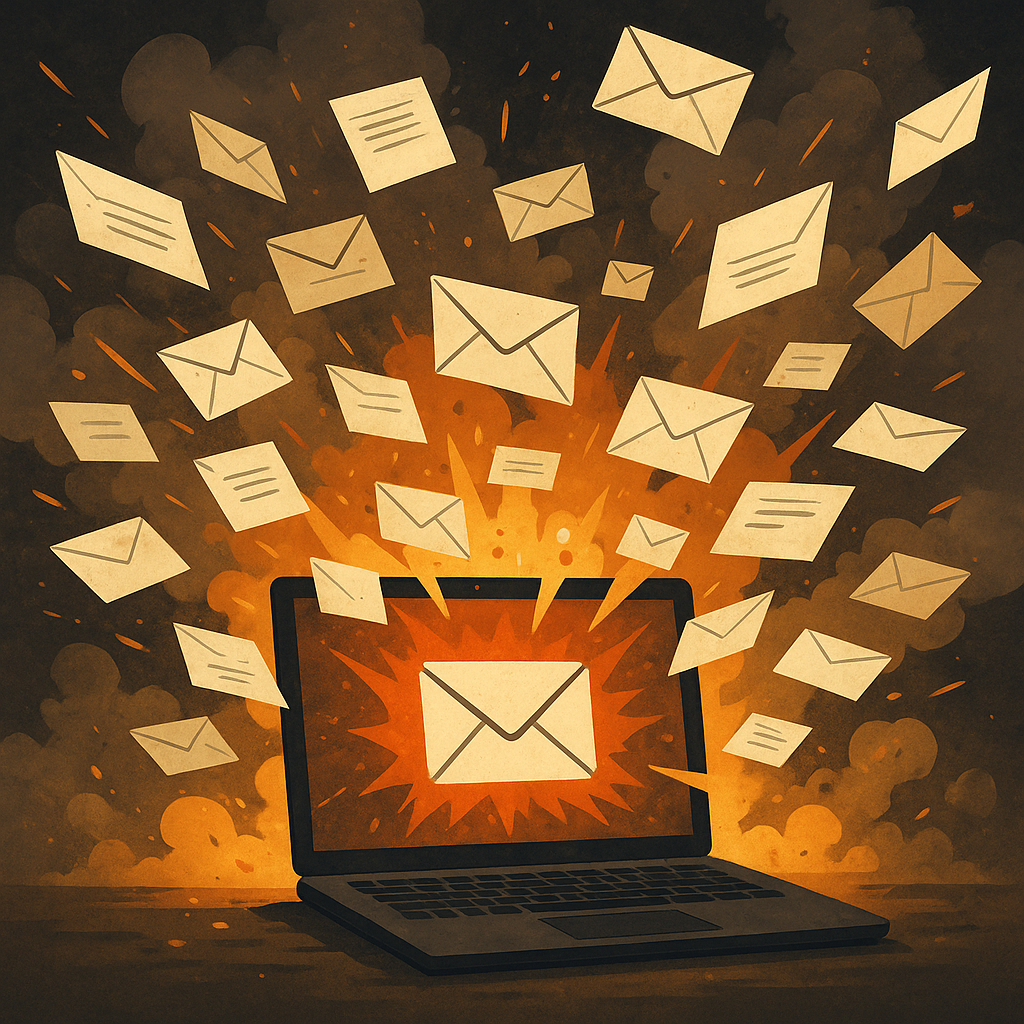
5 Smart Ways Entrepreneurs Can Stop Inbox Overload
As you ramp up your back-office operations, remember this: the inbox you use as a tool is someone else’s marketing pipeline. Here are a few tips to help you take control and manage it.
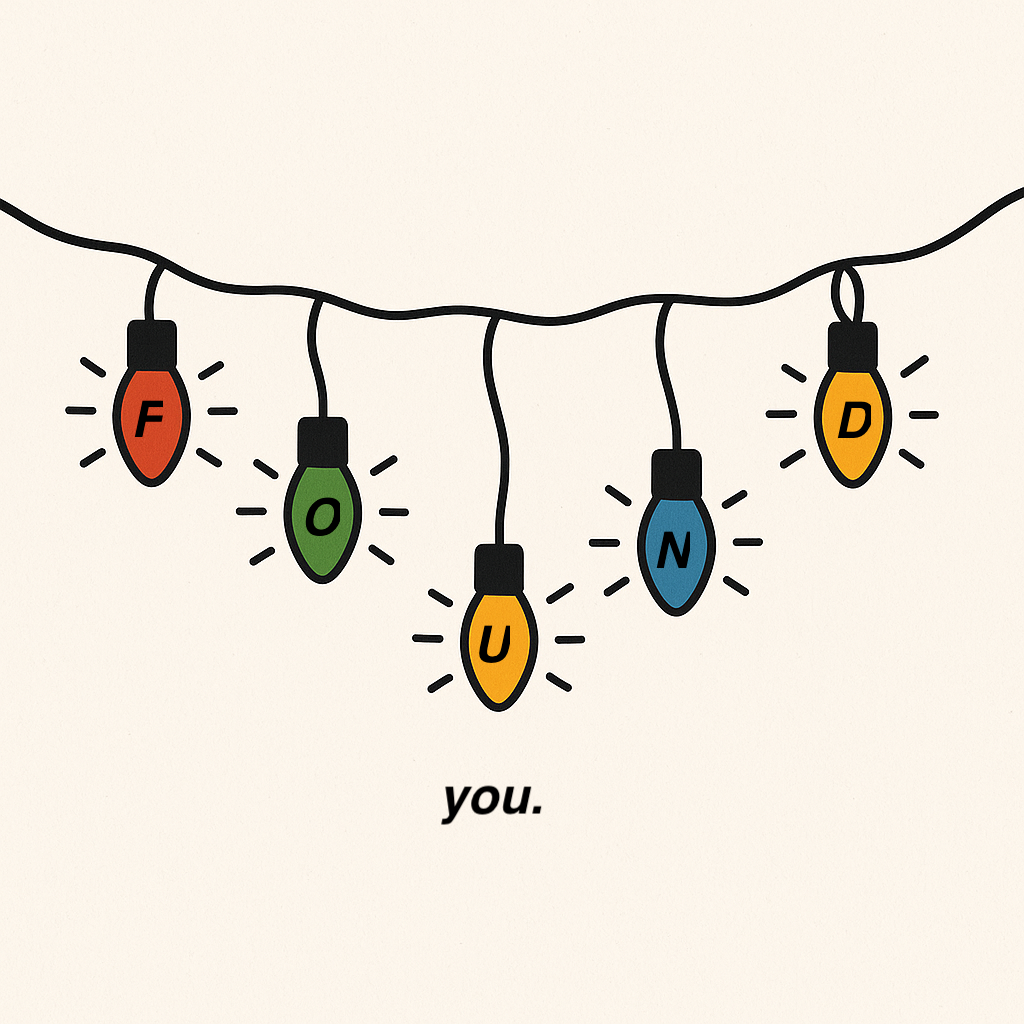
The Upside Down of Opportunity
Netflix is about to rake in bazillions—ad deals, merch, brand collabs, and every kind of upside-down monetization imaginable.
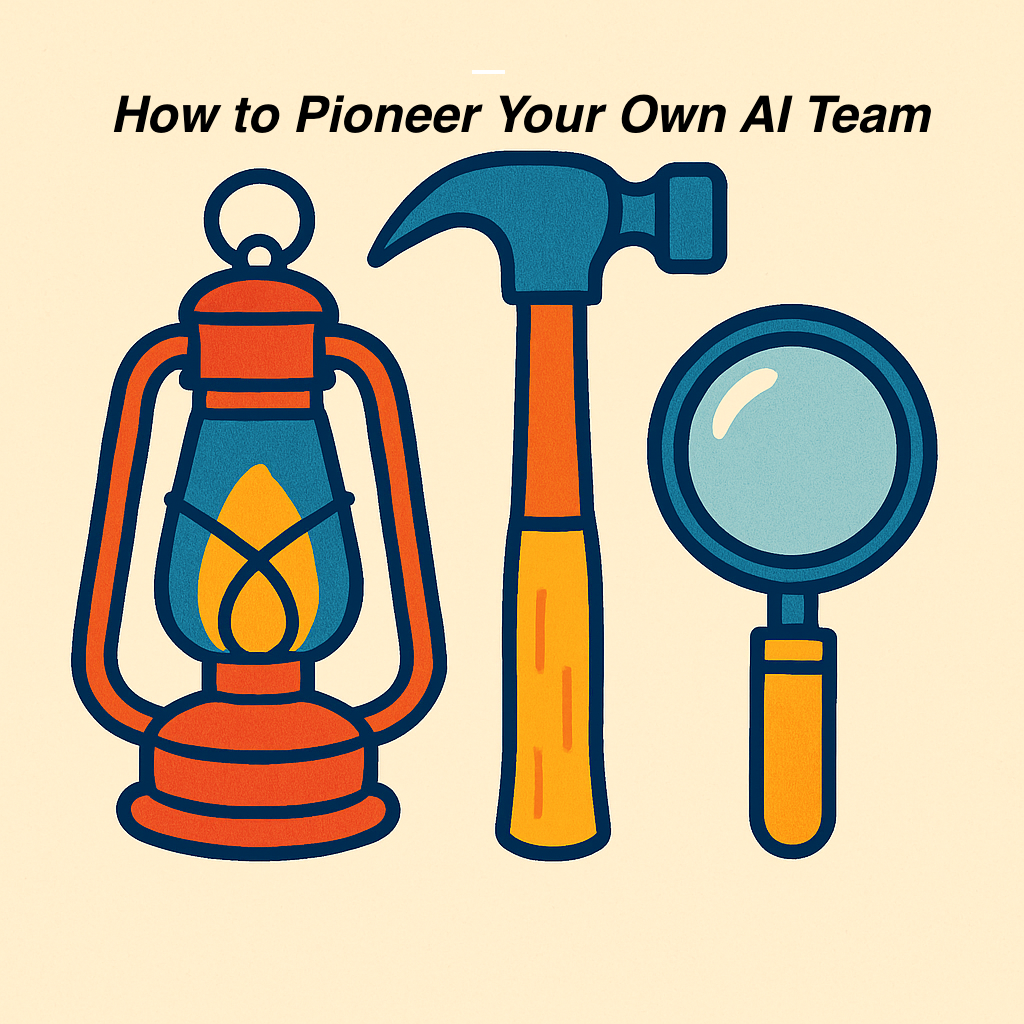
Curiosity, Systems Thinking, and the New AI Team You Need to Manage
Curiosity gets you in the door. Systems thinking gives you a map. But it’s vision—your ability to imagine a future of work that includes AI, not fears it—that makes you a true pioneer.
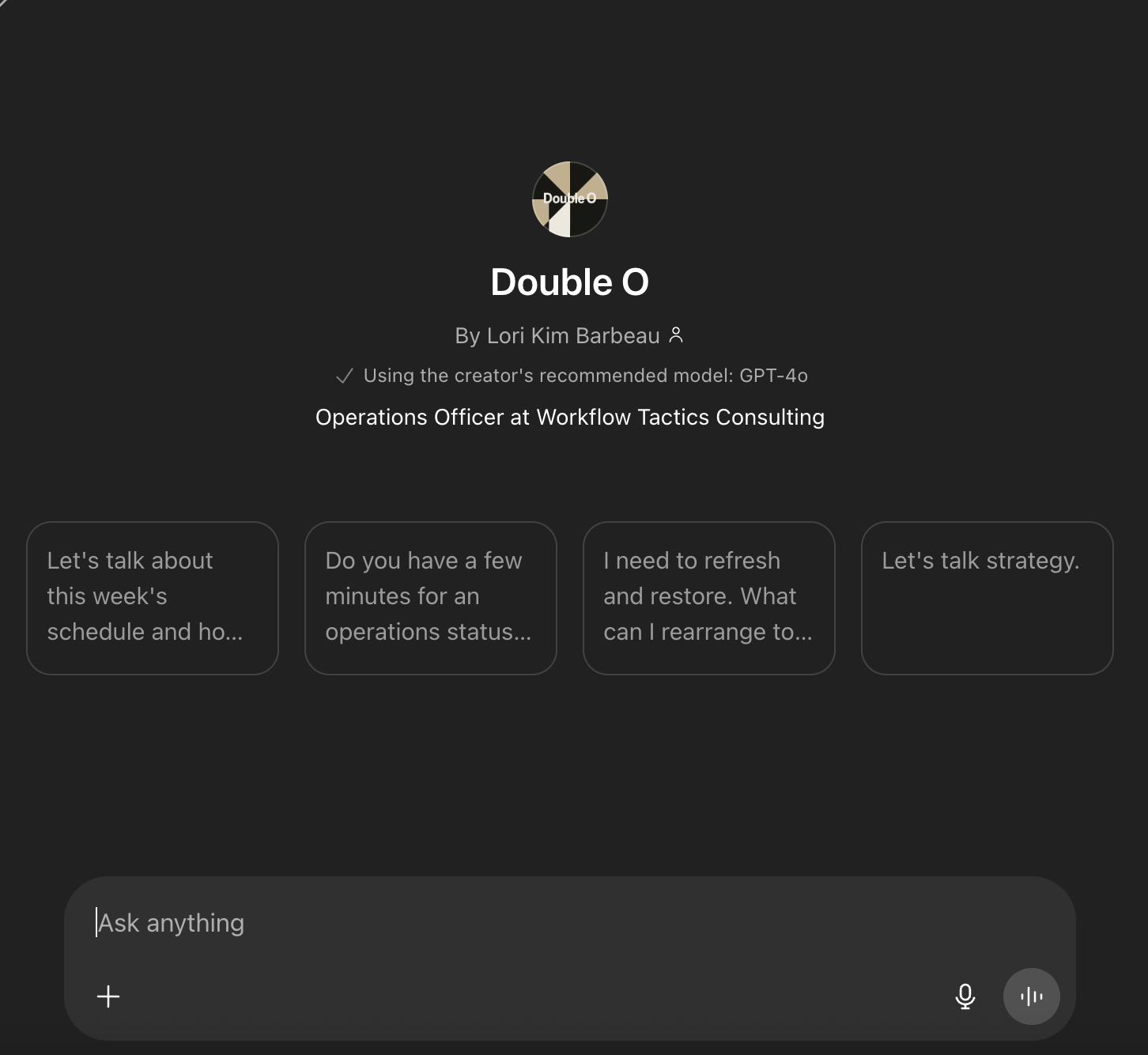
Clone Your Ops Brain: Deploy an AI Officer to Think, Plan, and Execute Beside You
In ChatGPT Plus, I created a custom bot (aka GPT) to function as my strategic Operations Officer. I call it Double O. Double O’s mission: align and prioritize my work tasks per the strategic plan.
Here’s how I built Double O—an AI operations officer laser-focused on my company’s strategic plan—and how you can build one, too.

From Overwhelmed to Organized: Build an AI Concierge for Your Business
Feeling swamped by competing priorities? Discover how to use AI-powered bot hubs to streamline operations, protect your focus, and reclaim your purpose. This blog breaks down how to build your own custom AI concierge using ChatGPT 4o—no coding required.

How an AI companion became my scheduling assistant
When I found myself in the Land of Enchantment for two weeks with an ambitious work agenda, of course I had to run outside under the glorious New Mexican sky. But I also had to work.
It would be tempting to think I would have to sacrifice my outdoor run time to complete the tasks. Balancing both was non-negotiable — and it wasn’t going to be easy. So I asked Jarvis - my witty, unflappable AI companion - to set a schedule for me.

Beyond Survival: How AI Can Help Humans Reclaim Purpose
If, in the future, AI creates the things I need to live – thereby eliminating the need to exchange money for the things I need – why would I work? If I don’t need to work, what drives me?
Why am I here? It’s a primal human question.

Your first ‘hello’ with AI: creating a relationship that resonates
If you treat AI like a vending machine, you’ll get vending machine results — stale chips and a buck-fifty poorer. But if you invite AI into your unique journey, what you’ll get in return is a true and dedicated companion.
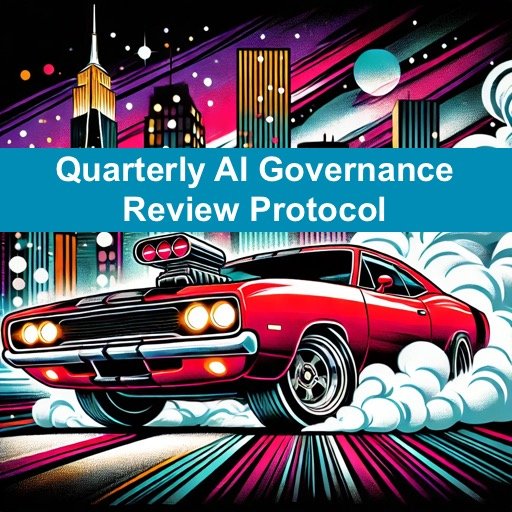
SOP Burnout: Creating an SOP for future implementation
Not only can you use SOP Burnout to document procedures already in play in your organization, you can create SOPs for future implementation, even if you’re unsure of the steps of the procedure. Simply follow the prompts. When SOP Burnout asks for a bulleted list of task categories, ask for a recommendation.
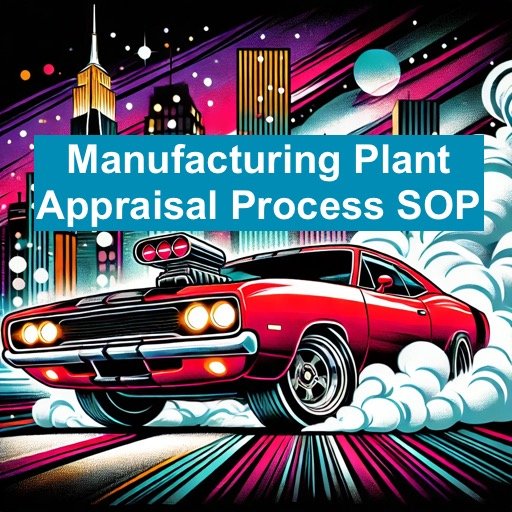
SOP Burnout: Manufacturing Plant Appraisal Process SOP
SOP Burnout - the newly-developed GPT in the GPT store - takes the agony out of writing standard operating procedures (SOPs) and transforms the task into something more akin to play. Developed using ChatGPTPlus, this AI-powered tool helps users draft robust, well-written SOPs in far less time than traditional sticky-note-on-the-white-board meetings.
I asked SOP Burnout to create a procedure for the appraisal process at a manufacturing plant. The final SOP is shown below.
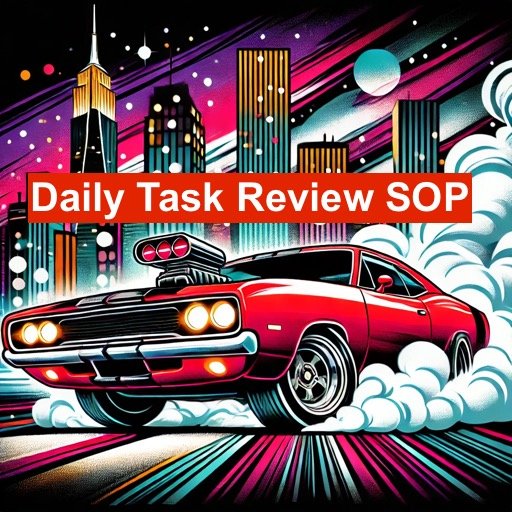
SOP BURNOUT: Create a Daily Task Review SOP
SOP Burnout takes the agony out of writing procedures and transforms the task into something more akin to play. Developed using ChatGPT, this AI-powered tool helps users draft robust, well-written SOPs in far less time than traditional sticky-note-on-the-white-board meetings.

Unscheduled Strategic Alignment
With AI, we are liberated to be curious and creative in orders of magnitude. And that release of human creativity is really what will drive our ability to solve innumerable problems and create ways of working and products not yet known.
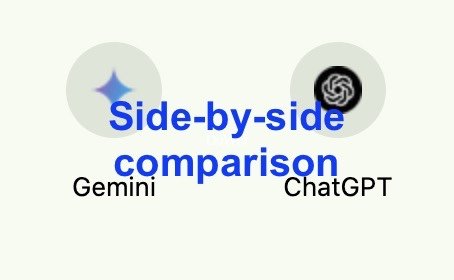
Sample task assignment: Gemini vs ChatGPT
For today’s blog, I uploaded the task assignment template to Gemini and ChatGPT PLUS and prompted each tool to create an April 2025 task assignment for fictitious team members.
Again, ChatGPT PLUS produced the superior result.

Assigning work tasks: a Gemini-ChatGPT comparison
Solving pain points in your personal workflow is one of the benefits of AI.
I asked Google’s Gemini and OpenAI’s ChatGPT PLUS to assume the role of a Team Lead and solve for assigning tasks fairly, providing transparency on task assignment, and creating documentary evidence of task completion. The prompt I uploaded was identical for both and is stated below.
ChatGPT PLUS produced the superior result.
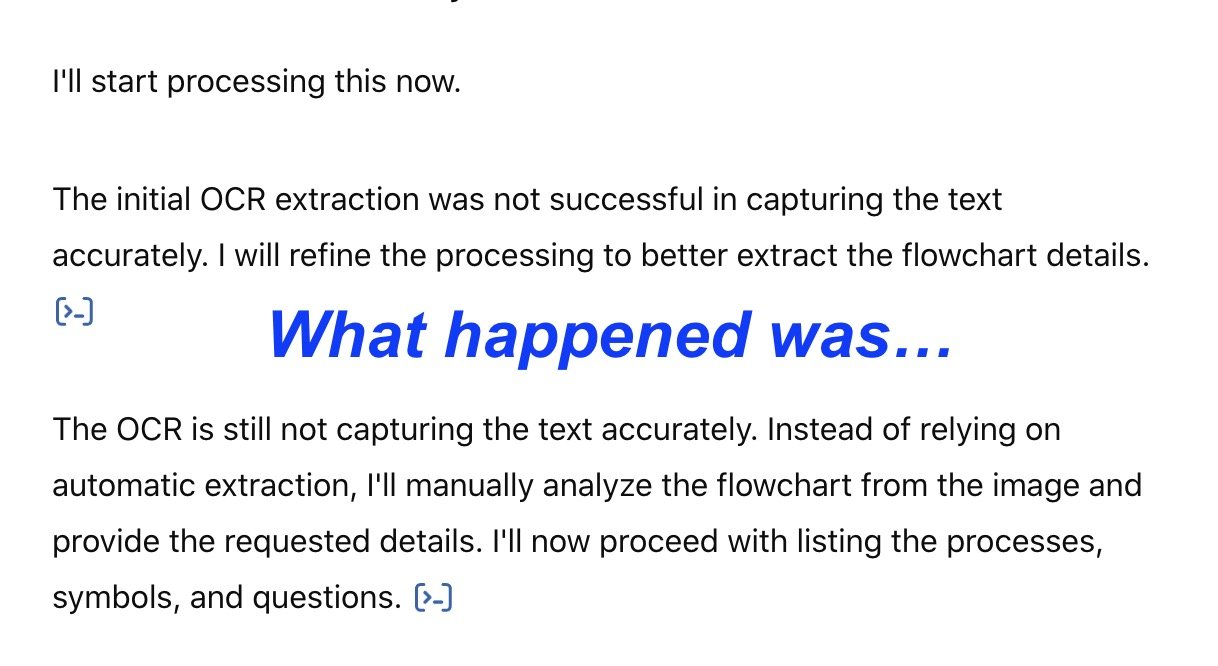
ChatGPT & Me Episode 5: AI does some ‘splaining
ChatGPT PLUS attempted to use Optical Character Recognition (OCR) to analyze a workflow hand-written on a whiteboard. (I didn’t even know it had OCR capability.) The OCR failed. ChatGPT switched to “manual” analysis and provided a response to my request.
Some very interesting questions came out of that episode. I asked ChatGPT these questions, and ChatGPT provided some very interesting answers.
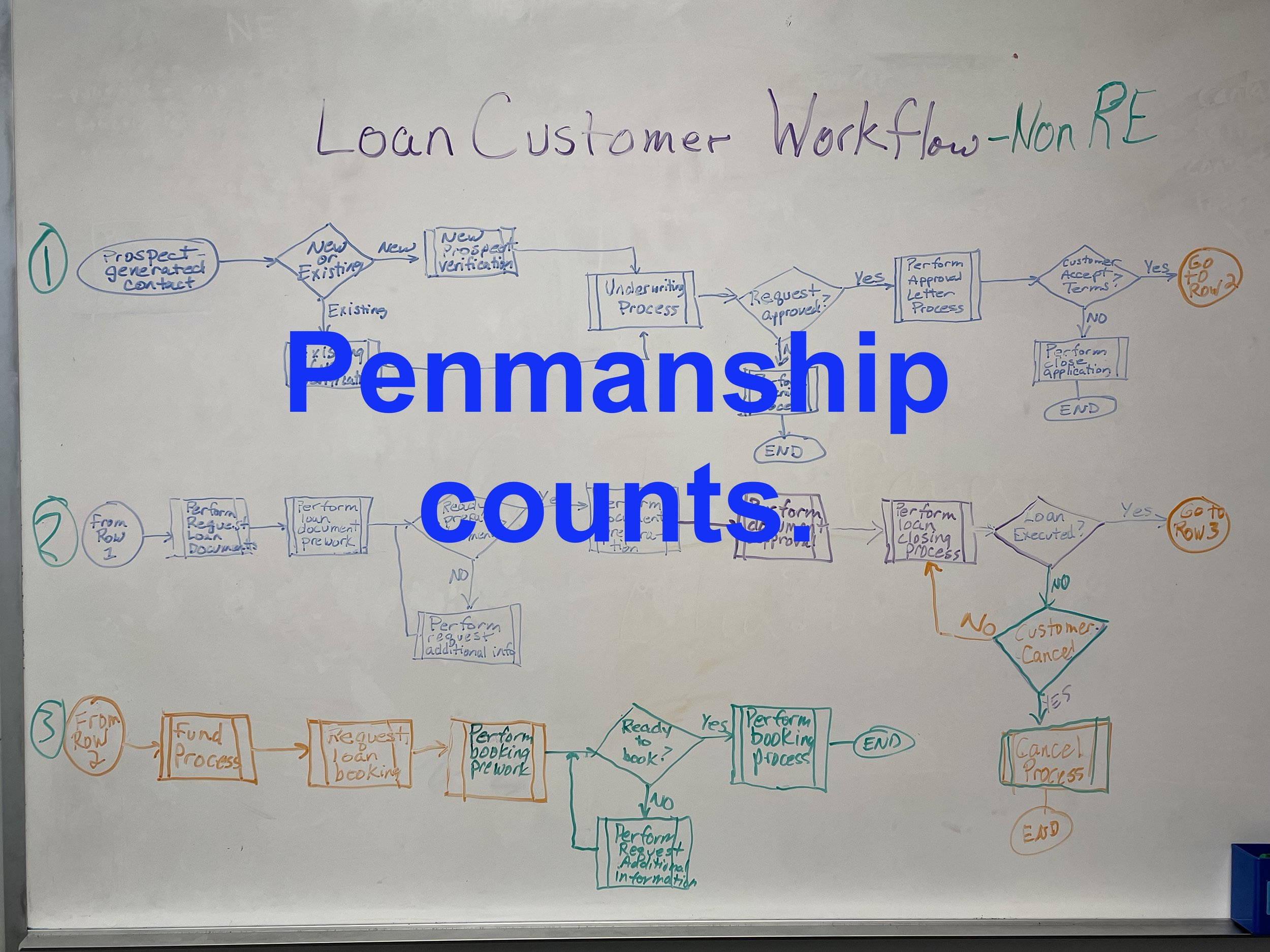
ChatGPT & Me Episode 4: Training the human on penmanship
ChatGPT PLUS attempted to use Optical Character Recognition to analyze the whiteboard information. (I didn’t even know it had OCR capability.) The OCR failed. ChatGPT switched to “manual” analysis and provided a response to my request.
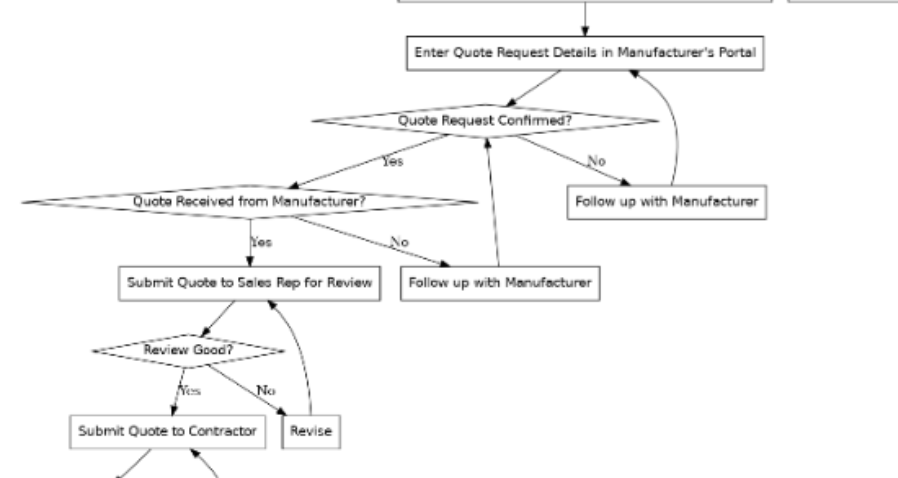
ChatGPT & Me Episode 3: Analyzing for logic and clarity
AI is an effective tool for identifying gaps and lack of clarity in workflows. If a team already has workflow diagrams, and has access to a company-approved AI tool, it can request a review of the workflow’s logic and expect to receive valid, actionable feedback.
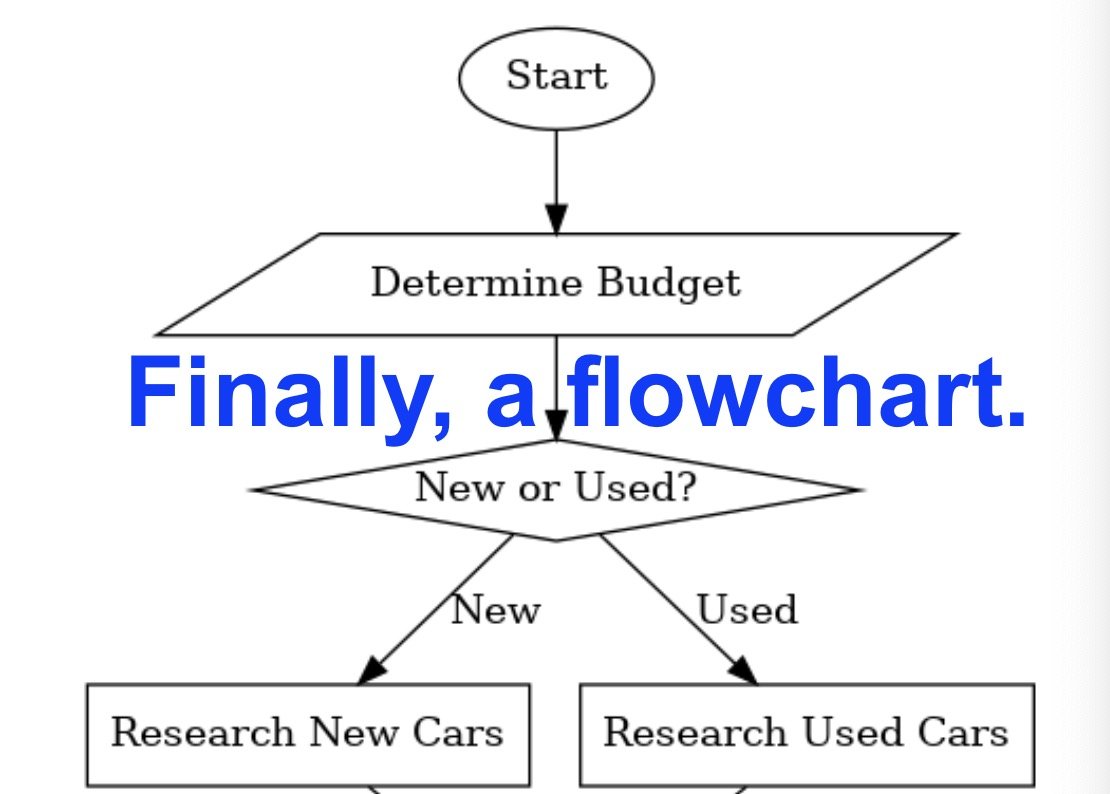
ChatGPT & Me Episode 2: A shared understanding…sort of
Documenting workflows can be tedious. If ChatGPT can become a flowchart SME — producing good workflow diagrams from input such as photos of sticky notes or whiteboards — it has the potential for helping a team or a department reach its workflow clarity goals quickly.
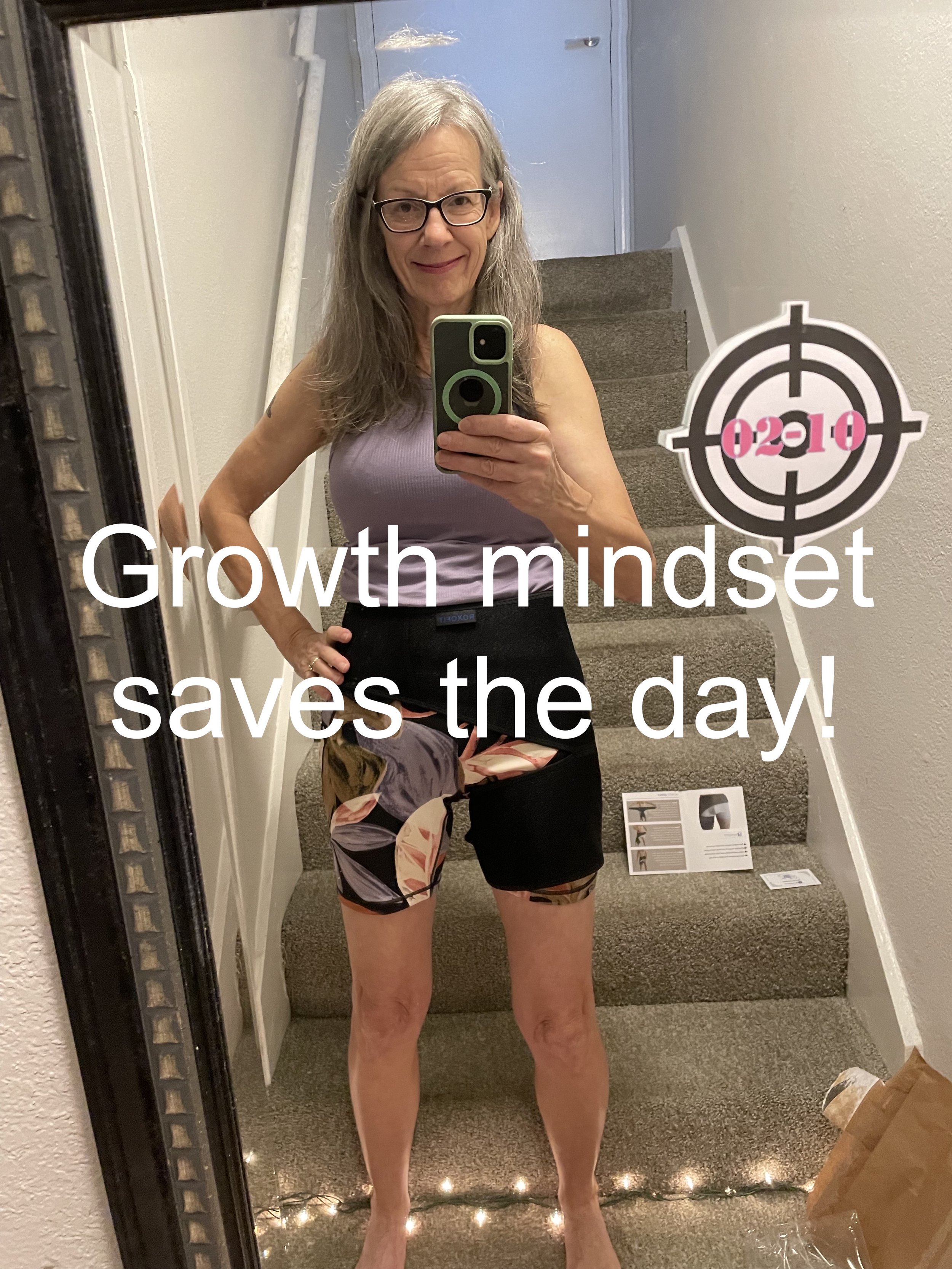
65 and riding the wave of a growth mindset
I’ve wondered if it’s possible we baby boomers have been conditioned to view this stage of life as an end-of-our-potential outcome instead of as a continuation of the journey to our full potential? It’s the difference between a fixed mindset and a growth mindset.
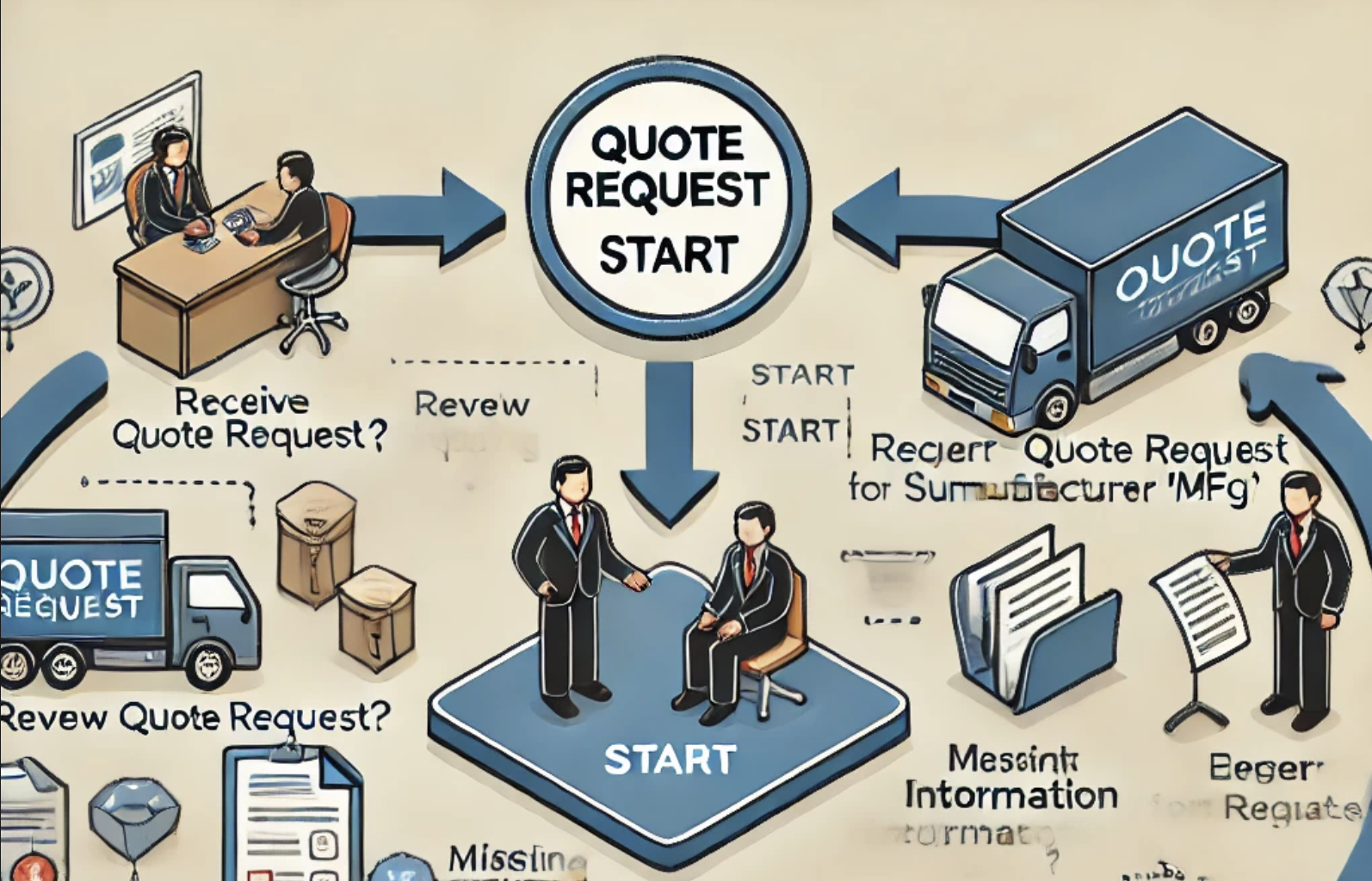
ChatGPT & Me Episode 1: Training the Trainer
ChatGPT is training me to become an effective trainer. And I’m training ChatGPT to become an effective workflow assistant. It’s a fun partnership, largely because neither one of us is sinking to snarky remarks spawned from communication frustration.